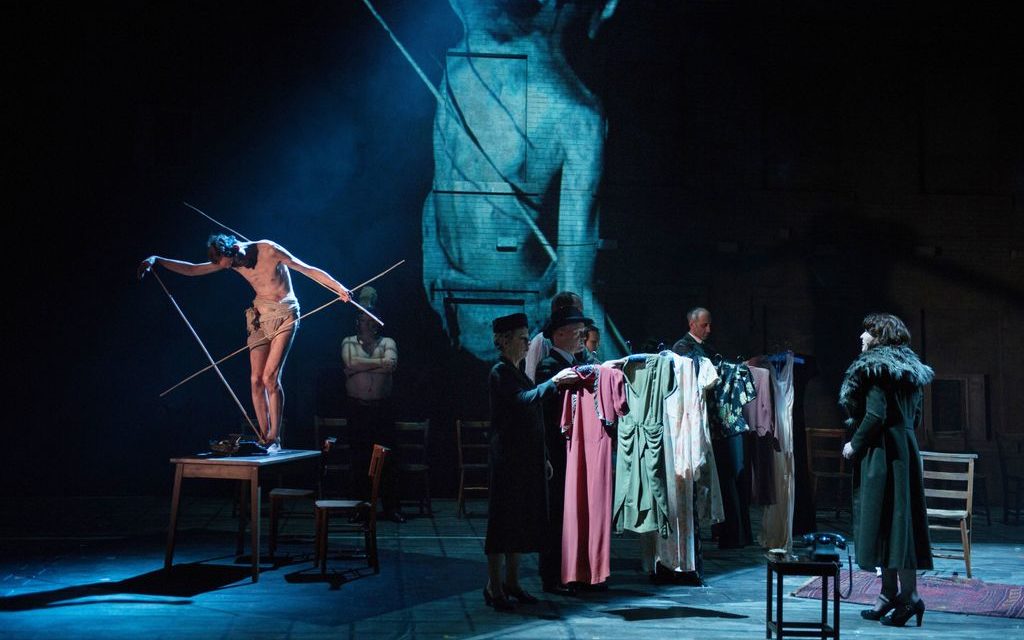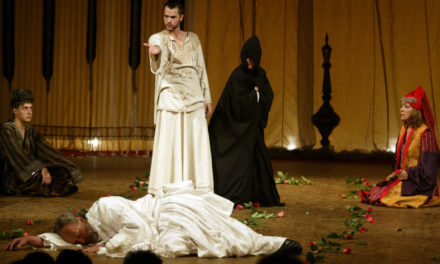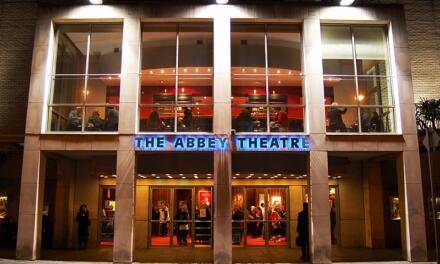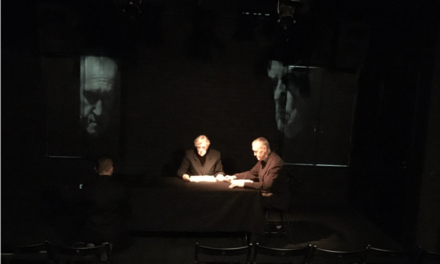Depending on who you talk to, devised theatre has numerous definitions. Eric Grode on the TDF Theatre Dictionary website states that a devised process “typically begins with little more than a rehearsal space and a group of eager, committed theatre practitioners. Through a series of improvisatory theatre games or other conceptual ice-breakers, they start to tease out the kinds of stories they’d like to tell and the way they’d like to tell them. Over time, a text emerges, one covered with the fingerprints of each and every participant.”
Vanessa Garcia in the article “The Paradox of Devised Theater on the Twenty-First Century Stage” states that it is “theatre that begins without a script. The script gets “written” as the rehearsal process takes place through a series of improvisations and collaborations.”
The simplest definition is given by John Walton in the article “Devised theatre: ten tips for a truly creative collaboration.” He states that devised theatre is “a process in which the whole creative team develops a show collaboratively. From actors to technicians, everyone is involved in the creative process.”
This process has become popular over the few decades. Those who are interested in the freedom to make their own work and explore subjects without the time, content, and other possible restrictions that accompany other types of theatrical rehearsal processes tend to flock to this genre of theatre. Numerous educational and professional theatres are using the techniques of devised theatre to address social issues, create moments of revisionist history, and deconstruct dramatic (or other forms of) literature. Devised Theatre has become a strong tool in creating conversations within an audience. Yet, there are downsides to this type of process. Where will you find the time and space to do the work while also paying your collaborators so they stay in it for the long haul? Also, this type of theatre is often looked down upon by some theatre practitioners (partially as a result of the cacophony of voices that claim to be the best way to devise a piece of theatre).
No matter where you sit on this issue, devised theatre does not appear to be going anywhere anytime soon. The prevalence of companies such as Frantic Assembly, Complicite, Wooster Group, Cornerstone, and Sojourn means that a small, and growing, segment of the theatre world has embraced the innovative, thought-provoking, and fun pieces that this small sampling of companies (and others like it) have brought to the theatre world’s consciousness.
This post was written by the author in their personal capacity.The opinions expressed in this article are the author’s own and do not reflect the view of The Theatre Times, their staff or collaborators.
This post was written by Martine Kei Green-Rogers.
The views expressed here belong to the author and do not necessarily reflect our views and opinions.


















